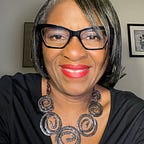The Creation of Safe Spaces in Cruel Places
Safe spaces have become a colloquium preceding the creation of fair social discourse that invites acceptance and inclusion.
Over the past several years, the notion of creating “safe spaces” for people to stand in their truths, surrounded by unconditional acceptance, has become (as we now say) a thing. Allowing individuals to give voice to who they are by proclaiming the value of their lived experiences without judgment promotes inclusion in an otherwise exclusionary world. This new space arena offers a safety net of belonging within which dignity and equity are celebrated. It is not necessarily a physical space, but an idea of a welcoming refuge, away from political attacks, shaming, bullying or “othering,” all of which have given rise to a toxic dynamic among human beings today.
Making Space in Times of Need
The novel use of the the word “space” has expanded beyond the traditional meanings of existing in social spaces and interacting with others. The nouveau terminology “safe space” conjures up open arms of comfort provided by an ally who supports, protects and affirms someone in need of validation by saying to them, “I see you … I hear you.” Safety in the space is given through a listening ear and an open heart. For marginalized people in particular, “safe space” implies that an exclusive holding space is available for the sharing of similar life experiences with those who can relate. Safe spaces are needed at this critical time in our history for storytelling of events unique to each individual’s experience simply because we all have a story to tell and need to feel emotionally safe to tell it.
A Welcoming Invitation to People of Color
As a mental health professional, I’ve used the colloquialism “safe space” as a way to invite my clients to openly share comfortably and in confidence. Over the past year and a half, clients have verbalized their deepest hurts and traumas which include triggered feelings and memories regarding the racial inequities and injustices unearthed in our country. As an African American woman in that role during a racially charged pandemic, the safe spaces I’ve provided have become my safe spaces, too, as I process the same events. Lived experiences between client and counselor melded in ways that gave the word ‘reciprocation’ a new meaning in the therapeutic setting, bringing two people together by the unspoken but glaring trait of skin color and ancestral history.
Healing Places in Shared Spaces
As I listened to clients with trained ear and wide open heart, I was not only holding space for them but relating to their experience within the same space, at a depth unlike I had before. The best example of this was how intensely impacted African Americans were after witnessing the murder of George Floyd. I, too, was greatly affected as I witnessed his heinous murder on social media. The event hit hard emotionally because we collectively related to the injustice of police brutality on a visceral level. Clients of color, especially, needed to process that horrific event, as well as other racially charged events, in the safe space I provided. It ended up being a space of shared safety for the client and for me, as we came on the telehealth screen, connecting on an emotional level during that summer of 2020 and beyond. At times, the safe space extended a beckoning without words, as eyes met at the beginning of a session with an understanding of shared sentiments about whatever the latest atrocity was to once again assault the psyche of the African American community.
The therapeutic spaces provided to clients of color during these times of political upheaval and racial tension became havens of mourning, grief, anger and rage, coupled with an exploration of coping skills and self-care activities. At the same time, I was forced to create my own safe spaces outside of the therapy space meant for clients. My favorite safe space became the morning bath where I looked forward to sharing my thoughts with God through prayer and meditation. The hot bubble bath continues to provide an unexpected sanctuary of rejuvenation and self-care in preparation for my being able to create safe spaces for others. May we all discover the value of the “safe space” as havens of acceptance, belonging, respect, affirmation and unconditional love of self and one another as we navigate through a sometimes cruel world.
